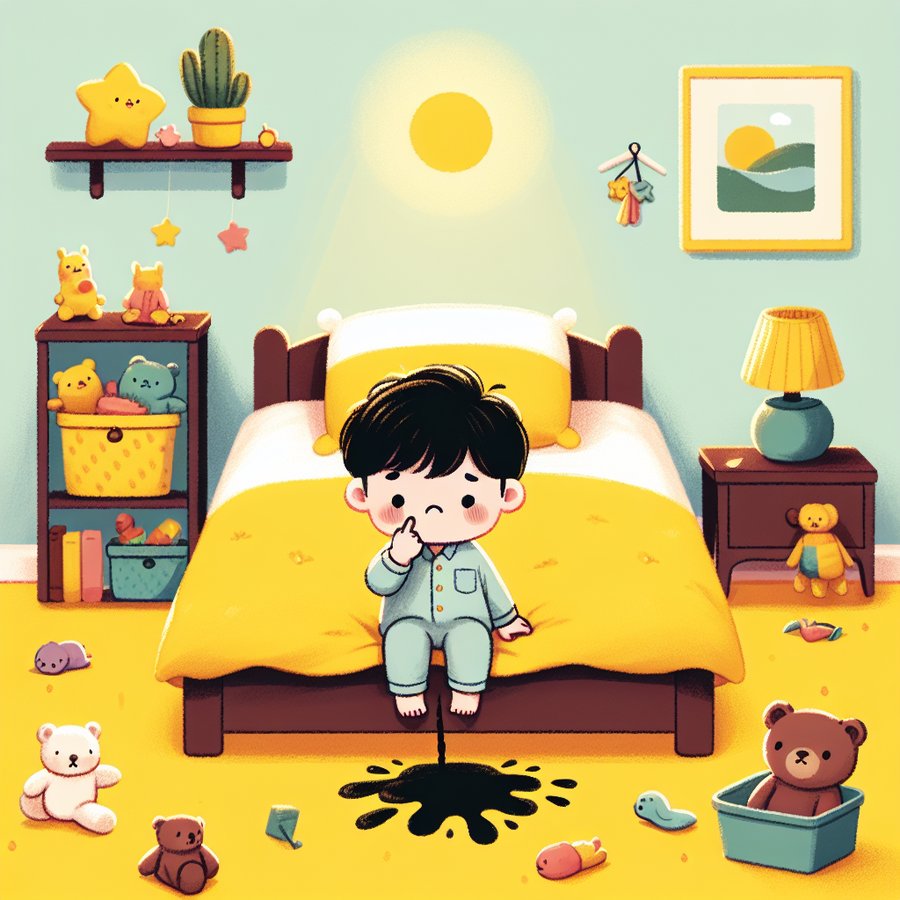Bedwetting, medically known as nocturnal enuresis, is a common condition that can be a source of stress for both children and their parents. While it is often a normal part of development, understanding its causes and finding effective solutions can help families navigate this phase with confidence. This article delves deep into bedwetting, offering insights and guidance to help new parents address and manage this condition.
What is Bedwetting and Why Does it Happen?
Bedwetting is defined as involuntary urination during sleep, typically occurring in children over the age of five. It is a prevalent issue, affecting millions of children worldwide. The causes of bedwetting can be multifaceted, including genetic factors, deep sleep patterns, slower development of the bladder control mechanisms, and emotional stressors. Understanding that bedwetting is often out of a child’s control is crucial for providing the right support.
Studies have shown that genetics play a significant role in bedwetting. If one or both parents experienced bedwetting as children, their offspring are more likely to face similar challenges. Additionally, children who are deep sleepers may not wake up in response to their bladder’s signals. It’s also important to recognize that children develop bladder control at different rates, with some taking longer than others.
How Can Parents Help Their Child Who is Experiencing Bedwetting?
Supporting a child who is experiencing bedwetting involves both emotional support and practical strategies. Open communication is essential; reassure your child that bedwetting is a common part of growing up and nothing to be ashamed of. This can significantly reduce any feelings of embarrassment or guilt they may be experiencing.
Practically, parents can encourage habits that may reduce the occurrence of bedwetting. Limiting fluid intake before bedtime, ensuring the child goes to the bathroom before sleeping, and using waterproof mattress protectors can be helpful. For some children, enuresis alarms, which wake the child at the first sign of moisture, can be effective. Consulting with a pediatrician is always recommended to rule out any underlying medical issues and to discuss the possibility of medication if bedwetting persists.
When to Seek Medical Advice for Bedwetting?
If bedwetting continues beyond the age of seven, or if a child who has been dry at night for a period of time starts bedwetting again, it’s advisable to consult a pediatrician. This can help identify any underlying medical conditions, such as urinary tract infections, diabetes, or sleep apnea, that may need treatment. Additionally, a healthcare provider can offer guidance on behavioral strategies and, in some cases, recommend medications that can assist in managing bedwetting.
It’s also important to seek support if bedwetting is causing significant distress to the child or family. Emotional and psychological support can be as important as addressing the physical aspects of bedwetting. Resources such as counseling and support groups can provide additional guidance and reassurance.
Useful Resources and Support for Bedwetting
Several online resources and organizations offer support and information for families dealing with bedwetting. The American Urological Association provides a comprehensive guide to understanding and managing bedwetting. Additionally, websites like BabyWhysAndHows offer articles on various pediatric health topics, including bedwetting, that can be a valuable source of information.
Exploring these resources can provide parents and caregivers with the knowledge and tools needed to support their child effectively. Remember, bedwetting is a common part of childhood development, and with the right approach, children can overcome it with their self-esteem intact.
For more detailed guidance on other health conditions that might affect your child, consider exploring topics such as urinary tract infections, sleep apnea, and diabetes on BabyWhysAndHows. Understanding these conditions can give you a broader perspective on pediatric health and wellness.













